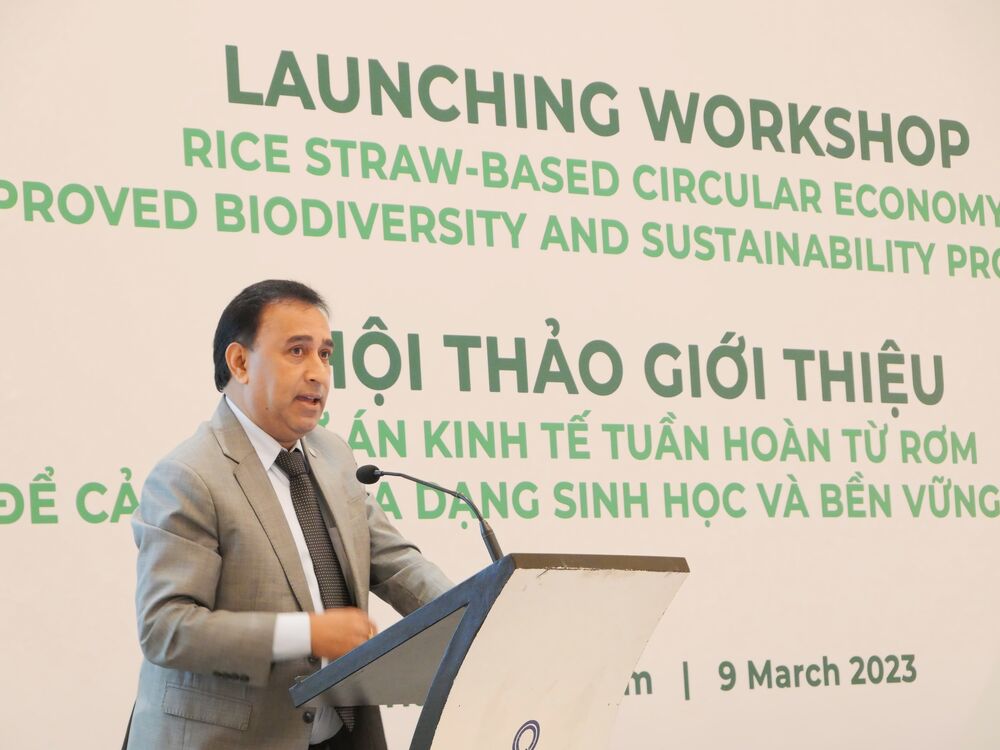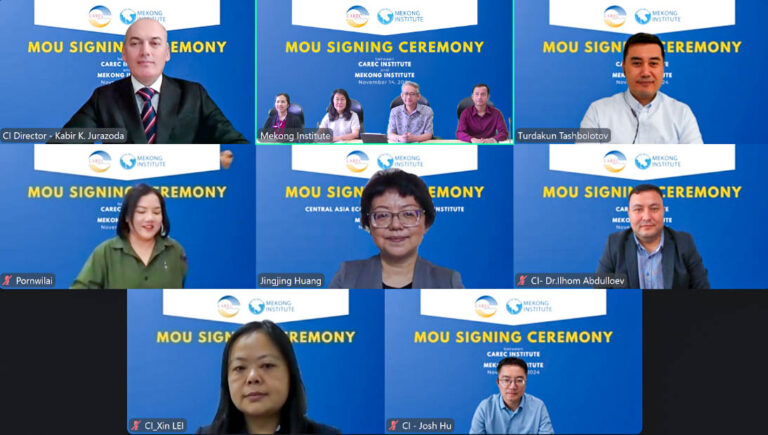On March 9, 2023, the Ministry of Agriculture and Rural Development (MARD) of Viet Nam and the International Rice Research Institute (IRRI) jointly launched the “Rice Straw-Based Circular Economy for Improved Biodiversity and Sustainability Project” (RiceEco) in Hanoi, Viet Nam. Funded by the Mekong-Republic of Korea Cooperation Fund (MKCF), the project looks to introduce the circular economy through straw, sustainable straw management solutions, low-emissions, and straw-based green development consultations. RiceEco targets achieving at least a 20% reduction in rice straw burning, and cuts of 20% in greenhouse gas (GHG) emissions at the project’s sites. Soil quality is also expected to improve.
Opening the event, Mr. Vu Thanh Liem, Deputy Director General of International Cooperation Department, MARD, Viet Nam, explained the impetus behind the ambitious plan. Globally, the production of rice straw is around 800 million to 1 bilion tons per year with 75-80% produced in Asia. More than half is burnt, leading to nutrient loss, GHG emissions, air pollution, and biodiversity loss of soil-dwelling organisms such as fungi and bacteria. Viet Nam and Cambodia, the locations for the project sites, are no exception. Burning the straw is still the main practice due to limited integration of straw in the rice value chain, lack of scale-appropriate technologies, and issues in crop management, markets, and stakeholder preferences.
With respect to the importance of the MKCF’s key role, Mr. Jongsoo Shin, IRRI-Asia Representative, expressed his appreciation for the financial support provided by the Republic of Korea through the MKCF. Over a period of 3 years, 5,000 farmers in Viet Nam and Cambodia will stand to benefit from turning rice straw into a resource as well as from other capacity building activities.








